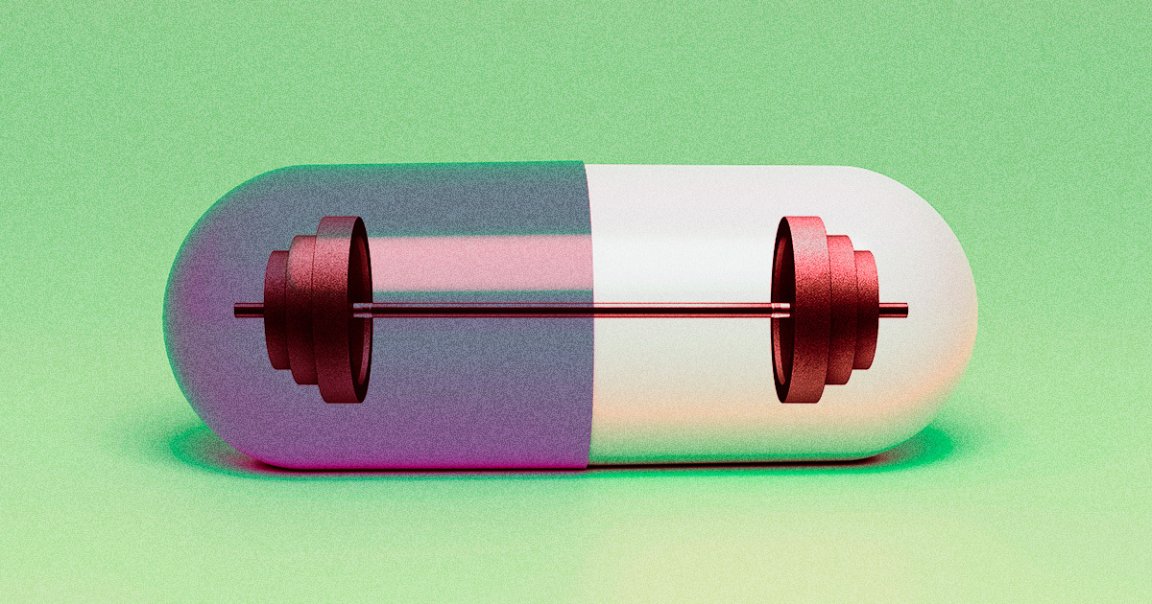
Scientists are intrigued by a drug that appears to imbue mice with the benefits of exercise without actually getting physical activity — but as you’d imagine, there are caveats, so don’t throw out your workout clothes just yet.
As a University of Florida press release about the new research declares, the newly-developed compound SLU-PP-332 led obese mice to lose weight by apparently convincing their bodies to go into marathon training mode, leading to a faster metabolism and more energy and endurance, and all without actually exercising.
“This compound is basically telling skeletal muscle to make the same changes you see during endurance training,” Thomas Burris, a UF pharmacy professor who led the research, said in the school’s press release.
SLU-PP-332 purports to achieve this by targeting what are known as EFF proteins that activate the body’s most “energy-gobbling” tissues, such as the brain, the heart, and other muscles. ERRs are naturally released during exercise, but until now, have proven elusive to stimulate with drugs.
Along with researchers out of Washington University in St. Louis and St. Louis University, Burris published his findings last week in the Journal of Pharmacology and Experimental Therapeutics, building on the team’s previous work designing the compound.
“When you treat mice with the drug,” Burris said, “you can see that their whole body metabolism turns to using fatty acids, which is very similar to what people use when they are fasting or exercising.”
As a result, “the animals start losing weight,” the researcher said.
Of course, mice aren’t people, so we have no idea how the drug would affect people. And previous research into similar potential treatments hasn’t turned out with inspiring results.
Known as “exercise mimetics,” this class of drug has, in spite of some recent studies into their benefits, long been shunted to the world of purportedly miraculous — and non-FDA-approved — weight loss and workout endurance drugs that promise users the benefits of exercise without the work.
As recently as 2018, when researchers presented a review of so-called exercise mimetics at a physiology conference, critical scientists argued that “terminology to describe the effect of any oral compound that purports to have ‘exercise-like’ properties should be focused on the narrow range of biological pathway(s) activated by any given agent, so that the specificity and limited response to that drug are accurately defined” — though of course, “SLU-PP-32” or “EFF agonist” don’t have quite the same ring to them as “exercise in a pill.”
SLU-PP-332 does, to its benefit, appear to be different from its predecessors in the proteins it targets, and may well prove to be more beneficial because of it, especially given that in mice studies, researchers found no severe side effects.
Like Ozempic, Moujnaro, and Wegovy, which the paper curiously cites by name as game-changers in obesity treatment that spurred on “a surge of interest, research, and funding for drugs that could treat these metabolic diseases through different biological pathways,” this potential exercise mimetic could, as UF’s Burris suggests, “keep people healthier as they age.”
But it could also, as further research in both mice and humans commences, prove to be more snake oil.
More on weight loss “cures”: Sites Spring Up to Sell Semaglutide for Cheap With No Prescription